|
Story originally published by DeSmog
Washington, D.C. is suing the four largest investor-owned oil and gas companies — BP, Chevron, ExxonMobil, and Shell — for allegedly misleading consumers about climate change, including historically undermining climate science and even now using deceptive advertising about the companies’ role in leading solutions to the climate crisis. District of Columbia Attorney General Karl A. Racine announced the consumer fraud lawsuit on Thursday, June 25. The lawsuit claims that the four oil majors violated the District’s Consumer Protection Procedures Act by engaging in misleading acts and practices around the marketing, promotion, and sale of fossil fuel products, which produce globe-warming pollution. The D.C. lawsuit alleges that these companies knew since at least the 1950s about the harmful consequences of burning fossil fuels and that they engaged in a campaign to deceive the public about those risks. “For decades, these oil and gas companies spent millions to mislead consumers and discredit climate science in pursuit of profits,” said Attorney General Racine. “The defendants violated the District’s consumer protection law by concealing the fact that using fossil fuels threatens the health of District residents and the environment. [The Office of Attorney General] filed this suit to end these disinformation campaigns and to hold these companies accountable for their deceptive practices.” In particular, the D.C. Attorney General's Office called out the oil industry's use of fake grassroots groups, such as the Advancement of Sound Science Coalition, which started out as a front group for tobacco giant Philip Morris in 1993. This group had transitioned to become the Advancement of Sound Science Center in 1997 and was run out of the home of climate science denier Steve Milloy, who most recently worked in public relations for coal company Murray Energy. The group has now been phased out of existence. The lawsuit also highlighted the role of oil and gas industry groups, including the American Petroleum Institute and the now-defunct Global Climate Coalition — a fossil fuel-backed group launched in 1989 that for decades influenced the scientific process behind the United Nations climate assessments, using lobbyists and industry-funded scientists to attack climate scientists and manipulate the international UN climate negotiations. The District of Columbia lawsuit is asking the court to order the companies to end their disinformation campaigns and pay civil penalties. D.C. Joins Minnesota in Suing Oil Companies The announcement from D.C. comes just one day after Minnesota Attorney General Keith Ellison announced that Minnesota is suing Exxon, Koch Industries, and the American Petroleum Institute for allegedly leading a 30-year campaign undermining climate science and misleading the public about the dangers of fossil fuels. Already over a dozen cities, counties, and states across the country have filed lawsuits against ExxonMobil and other major fossil fuel companies in an attempt to hold the industry accountable for what is now a well-documented campaign to cast doubt on climate science and delay climate policies. While these lawsuits are grounded in varying legal claims such as public nuisance, product liability theories, and consumer fraud, they all aim to hold companies like Exxon and Chevron liable for deceptive communication about their products to protect profits, much like litigation against manufacturers of tobacco, lead paint, asbestos, and opioids. Like the Minnesota lawsuit filed the day before, the D.C. complaint explains the striking similarities between the tobacco industry’s campaign to deceive the public about the health risks of smoking, and the fossil fuel industry’s efforts to deliberately downplay the climate impacts of fossil fuels. According to a press release from the D.C. Attorney General’s Office, “The [oil] companies not only employed the Advancement of Sound Science Coalition — a fake grassroots citizen group created by Big Tobacco as part of the industry’s misinformation campaign — they also funded and promoted some of the same scientists hired by tobacco companies. These scientists disputed the conclusions of climate researchers, despite not having any training in climate science themselves.” The D.C. complaint also details how the fossil fuel industry’s communication tactics shifted once the climate science became indisputable. More recently these oil and gas companies have tried to portray themselves as environmentally responsible companies committed to solving climate change through investments in clean energy, and misleadingly promoting the fossil fuel natural gas as “clean.” The lawsuit claims this portrayal is deceptive because the companies’ actual investments in renewable energy like wind and solar are miniscule (Shell directed just 1.2 percent towards “greener” energy, for example), and because fossil fuel products like natural gas still produce carbon emissions, and release the powerful greenhouse gas methane during production, and therefore are not actually “clean.” “The fact of the matter is that no fossil fuel product is ‘safe,’ nor ‘clean.’ It all creates carbon emissions, and it all represents a threat to consumers,” Attorney General Racine said during a press call. ExxonMobil is facing other lawsuits for alleged deceptive advertising and misleading consumers, including from the city and county of Boulder, Colorado, the Commonwealth of Massachusetts, an environmental organization called Beyond Pesticides, and most recently the state of Minnesota. Exxon spokesperson Casey Norton told DeSmog, “This lawsuit further demonstrates the ongoing coordinated, politically motivated campaign against energy companies. Legal proceedings like this waste millions of dollars of taxpayer money and do nothing to advance meaningful actions that reduce the risks of climate change.” According to Chevron spokesperson Sean Comey, “The claims against the company are meritless. This type of litigation detracts from constructive efforts to address the important policy issues presented by climate change.” According to D.C.’s Deputy Attorney General in the Public Advocacy Division, Kate Konopka, the District did not coordinate with Minnesota and was not even aware of Attorney General Ellison’s lawsuit until it was filed yesterday. The D.C. Attorney General Karl Racine has been investigating Big Oil and ExxonMobil in particular for potential fraud for the past several years, as had attorneys general in New York and Massachusetts. The investigations followed groundbreaking investigative reporting in 2015 revealing the extent of Exxon’s early knowledge of climate change. Over the last five years researchers and journalists have uncovered even more evidence demonstrating not only what fossil fuel companies knew about climate science and when, but how they worked to conceal that knowledge and create a false impression of scientific uncertainty. “The remarkable thing about these cases is how much evidence we have even before we get to discovery,” Kert Davies, founder and director of the watchdog group Climate Investigations Center, told DeSmog. “We have a mountain of evidence of what they knew and what they did to deceive the public about the threat of climate change. And yet we’ve only scratched the surface.”
0 Comments
Minnesota has officially joined the climate accountability movement with the announcement on Wednesday, June 24 of a groundbreaking lawsuit against fossil fuel behemoths such as ExxonMobil and Koch Industries and the nation's largest oil and gas lobbying group for alleged deception on climate change. Minnesota Attorney General Keith Ellison announced the lawsuit at a press conference Wednesday. The lawsuit names as defendants ExxonMobil, the American Petroleum Institute (API), and Koch Industries as well as Koch subsidiaries Flint Hills Resources LP and Flint Hills Resources Pine Bend. The lawsuit claims these organizations violated Minnesota consumer protection laws for orchestrating a campaign of deception around climate science and the danger of fossil fuels. “We’re here suing these three entities specifically because they designed, conducted, and funded this campaign of deception,” Ellison said at the opening of the press conference. That campaign of deception, he explained, included “deliberately undermining the science of climate change,” downplaying the role that fossil fuel products play in causing climate change, and failing to warn consumers and the public of what the fossil fuel industry already knew. Evidence uncovered by journalists and researchers shows that the fossil fuel industry, and specifically API, the largest trade association for U.S. oil and gas, knew since at least the 1950s about the climate impacts of burning fossil fuels. But instead of sounding the alarm, the industry continued internally researching climate science and, starting in the late 1980s, publicly casting doubt on the science. The Minnesota complaint, for example, includes an image of print advertisements from the Information Council for the Environment, an industry front group dedicated to denying the science of climate change. The ads compare predictions of climate change to “Chicken Little” and assert that “they may not be true” — despite the defendants’ knowledge of the validity of such predictions. “For 30 years the defendants made misleading statements about climate change, the relationship between climate change and their fossil fuel products, and the urgency of the problem. For 30 years they lied, deceived, muddled the facts, and created a false controversy when there really wasn’t one,” Ellison said during the press conference.
“With this action, Minnesota is joining a growing list of governments from around the country that are seeking to hold companies responsible for misleading the public about climate change in order to protect their bottom line,” Minnesota Asst. Attorney General Leigh Currie said. Over a dozen lawsuits have been filed against fossil fuel companies by municipal governments including cities and counties in California, Colorado, Washington, and Hawaii, as well as the cities of Baltimore and New York and the state of Rhode Island. The state of New York filed an investor fraud lawsuit against ExxonMobil, which went to trial last fall and was dismissed. Massachusetts Attorney General Maura Healey sued Exxon on October 24, 2019, claiming both investor fraud and consumer fraud, and that case is currently proceeding. Minnesota’s lawsuit is most similar to the Massachusetts case in the allegations of consumer fraud in violation of state consumer protection statutes. But the Minnesota lawsuit targets additional defendants besides Exxon and is the first in the country to target Koch Industries and API. API responded to the Minnesota announcement by defending the petroleum industry’s environmental record. “The record of the past two decades demonstrates that the industry has achieved its goal of providing affordable, reliable American energy to U.S. consumers while substantially reducing emissions and our environmental footprint. Any suggestion to the contrary is false,” API Chief Legal Officer and Senior Vice President Paul G. Afonso said in an emailed statement. “This lawsuit is part of a coordinated, politically motivated campaign against energy companies. Legal proceedings like this waste millions of dollars of taxpayer money and do nothing to advance meaningful actions that reduce the risks of climate change,” Exxon spokesperson Casey Norton said in an emailed statement. “ExxonMobil will continue to invest in efforts to reduce greenhouse gas emissions while meeting society’s growing demand for energy,” Norton added. “A Texas court recently referred this type of litigation as ‘Lawfare’ — an ugly tool that abuses the legal system to seek environmental policy change. The claims are baseless and without merit. We look forward to defending the company in court.” Minnesota filed the lawsuit in District Court for the County of Ramsey, a Minnesota state court. The lawsuit includes claims for fraud, failure to warn, and multiple separate violations of Minnesota statutes that prohibit consumer fraud, deceptive trade practices, and false statements in advertising. In return, the state is asking Exxon and Koch Industries to turn over profits (meaning they would pay large sums of money) and is seeking maximum civil penalties (more money). Additionally, the lawsuit calls for an order requiring the defendants to stop their alleged misleading advertising and communications and to fund a public education campaign in Minnesota on the subject of climate change. Echoes of Tobacco Litigation Minnesota played a leading role in state attorney general lawsuits against the tobacco industry, which misled consumers about the health risks of smoking. The landmark case State of Minnesota v. Philip Morris resulted in a substantial settlement of $6 billion over the first 25 years and $200 million every year after, and was the only state case against Big Tobacco to make it to trial. Doug Blanke, who worked on the tobacco case as former head of the Minnesota Attorney General’s Consumer Protection Division, said he believes the climate deception lawsuit has a good chance in the courts based on what happened with the tobacco litigation. He said the legal claims and alleged wrongdoing are very similar. “The alleged actions from these [fossil fuel] defendants are ripped straight from the playbook of the tobacco industry,” Blanke said during the press conference. Roberta Walburn, an attorney with Ciresi Conlin who also led Minnesota’s groundbreaking tobacco case, made a similar comment at an event titled “The Legal and Scientific Case for Recovering Climate Change Damages in Minnesota From Fossil Fuel Companies,” held last October at the University of Minnesota Law School. “I think we’re seeing in the climate change litigation the fossil fuel players using the same playbook as the tobacco companies did,” Walburn said. “They’re using some of the same players, hiring a payroll of researchers to create doubt about the science, using trade groups to do the same thing.” 'Exxon Chose Profit Over People' Minnesota Attorney General Ellison and other speakers at the press conference explained that this lawsuit is focused on holding corporate actors accountable for putting profits over people’s lives and health. “When corporations and trade associations break the law and hurt Minnesotans, it’s my job and my duty to hold them accountable,” Ellison said. “Unfortunately, some companies seem to care more about their bottom lines than the public’s health. But it’s a violation of Minnesota law to mislead consumers about the products you sell, and the Attorney General has laid out a powerful case that these companies did exactly that,” said Doug Blanke, who now directs the Public Health Law Center at the Mitchell Hamline School of Law. “We are spending our time fighting a last-minute battle to preserve a livable world for ourselves and future generations because corporations like Exxon knew the impacts of climate change, but continued to deceive the public for decades,” added Juwaria Jama, an organizer and state lead for the Minnesota Youth Climate Strike. “Exxon chose profit over people. It’s time they’re held accountable.” fossil fuel companies and their supporters ask supreme court to intervene in climate lawsuits6/23/2020 California communities last month got an important procedural win in their efforts to get fossil fuel companies to pay for climate-related impacts. On May 26, a federal appeals court ruled that their lawsuits could go ahead in state court, which is their preferred venue, rather than federal court.
Similar lawsuits filed by Colorado communities, Baltimore, and Rhode Island are also marching on in state courts following unsuccessful attempts by fossil fuel companies to have the cases heard in federal courts, where they are more likely to be dismissed. Overall, the communities lodging these legal battles seem to be gaining momentum. However, some of the companies facing those lawsuits appear to be gearing up for a larger battle, looking to the Supreme Court to weigh in and using their network of promoters to continue attacking these lawsuits outside the courtroom. One such supporter of fossil fuel companies is the Manufacturers' Accountability Project (MAP). An initiative of the trade group the National Association of Manufacturers (NAM), it's designed to push back against climate litigation targeting NAM members such as ExxonMobil and Chevron. Since the project launched in November 2017, MAP has been fiercely criticizing climate liability lawsuits like those in California. In the wake of the recent Ninth Circuit Court of Appeals ruling, MAP Special Counsel Phil Goldberg issued a statement calling on the Supreme Court to take a definitive stance on these climate cases. “The Ninth Circuit ruling identifies the main reason this case and all climate tort litigation is not suited for federal or state court,” he wrote, adding the ruling “underscores why the U.S. Supreme Court should hear the climate tort cases now and resolve them once and for all.” Legal Newsline, a publication owned by the U.S. Chamber of Commerce’s Institute for Legal Reform, which is opposed to this type of lawsuit, echoed Goldberg’s statement. (The U.S. Chamber of Commerce is a staunchly pro-business group that has vowed to fight against efforts to regulate greenhouse gas emissions through existing environmental laws and has received at least $3,000,000 in funding from ExxonMobil.) According to a June 1 Legal Newsline story, the climate cases will come to a “showdown at SCOTUS” [Supreme Court of the United States] where the high court will need to weigh in on whether plaintiffs are permitted to bring climate change cases under state law claims. Will the Supreme Court Get Involved? Whether or not the Supreme Court will intervene at this stage remains to be seen. Fossil fuel companies being sued by Baltimore currently have a petition pending before the Supreme Court. That petition seeks to overturn a March appeals court ruling that Baltimore’s case should go ahead in state court. The Ninth Circuit appeals court issued a similar ruling on May 26 allowing cases filed by six California communities to advance in state court. Those communities include the counties of San Mateo, Marin, and Santa Cruz and the cities of Imperial Beach, Richmond, and Santa Cruz. Additionally, the Ninth Circuit issued a second ruling that cases brought by Oakland and San Francisco against five oil companies did not involve issues of federal law. That ruling means those cases are also a step closer to proceeding in state court. The California communities suing fossil fuel companies want their lawsuits in state courts, where the suits have a better chance of succeeding. And that is why the companies being sued are fighting so hard to keep the lawsuits out of state court. The Ninth Circuit rulings are a big setback for those defendants. “With respect to next steps, we are evaluating our options,” Chevron spokesman Sean Comey told DeSmog in an emailed statement on June 2. In a filing that day to the Ninth Circuit Court, the companies being sued in California asked for more time as they consider their next move. That move could either be asking the full Ninth Circuit Court to review the May 26 rulings (which were issued by a panel of three judges from that court), or alternatively to ask the Supreme Court to review the rulings. “I would imagine the oil companies will seek en banc [full court] review in the Ninth Circuit. If that fails they'll petition … the Supreme Court,” University of California, Los Angeles environmental law professor Ann Carlson, who has done consulting work for the California plaintiffs, said in an email. As for whether the Supreme Court might intervene given the petition pending in Baltimore’s case, Carlson said she “would guess that they’ll reject the petition.” Dan Farber, professor at UC Berkeley School of Law, addressed the question of “will the Supreme Court intervene?” in a May 27 post on the Legal Planet blog, which provides insight and analysis on energy and environmental law and policy from faculty at UC Berkeley School of Law and UCLA School of Law. “As a technical matter, the Ninth Circuit seems clearly correct. But even if these lawsuits ultimately lose in state court, such lawsuits could be a drain on oil companies and scare investors. The question is whether the Supreme Court is willing to wait until the state courts have finished deciding these cases,” Farber wrote. “At least some Justices on the Supreme Court are likely to think that these lawsuits are an invitation to dangerous judicial activism,” he added. “And they may not trust the courts in Blue States to turn down the invitation. Are there enough Justices with that attitude to overturn the Ninth Circuit? I guess we’ll find out.” The Supreme Court has already refused to pause several of these climate cases while the fossil fuel companies appealed decisions ordering the cases back to state courts. Two federal appeals courts, the Fourth Circuit and the Ninth Circuit, have now upheld those decisions. According to one environmental legal expert, these outcomes further reduce the likelihood that the Supreme Court would get involved at this stage. “If there is no split among these Circuits, it is highly unlikely that the Supreme Court will take that up,” Alyssa Johl, an environmental attorney at the Center for Climate Integrity, a nonprofit supporting climate liability litigation, told DeSmog in an interview. Johl also noted that the Ninth Circuit Court panel who issued the recent decisions favoring the California communities is “not an overly liberal panel,” with two out of the three judges on that panel having been appointed by Republican presidents. Seeking a review from the full court might not be in the fossil fuel companies’ best interests because they might not see a different outcome. “It’s almost the end of the road for defendants to challenge these cases in federal court,” Johl said. “To some extent [defendants] have already accepted their fate that these cases are going to proceed, and that they’re going to have to defend themselves in state courts around this country.” Climate Litigation Countermovement The oil, gas, and coal companies being sued are getting help amplifying their defense strategies in these cases. That help is coming from supporters at industry-funded websites and front groups that are working to discredit and oppose climate litigation. According to a fact sheet from EarthRights International, “In most cases, these intermediaries do not disclose when they have financial and strategic relationships with oil and gas companies that are defendants in the lawsuits. Most of the organizations have a close relationship with FTI Consulting, a Washington, D.C.-based public relations firm that works on behalf of ExxonMobil and other members of the oil and gas industry.” Energy In Depth, for example, is a website with regular posts both promoting oil and gas and attacking climate and environmental advocates and policies, including the climate liability lawsuits. FTI Consulting manages the website, which is a project of the Independent Petroleum Association of America (IPAA). Another intermediary is Climate Litigation Watch, which formed in 2018 specifically to counter the climate liability lawsuits against fossil fuel producers. Run by climate science denier and former coal attorney Chris Horner, the website is a project of Horner’s latest venture, Government Accountability & Oversight. This group uses public records requests and freedom of information lawsuits to target institutions and individuals working on climate issues and trying to hold polluters accountable. A closely related organization called Energy Policy Advocates uses the same tactics and also works to oppose the climate liability lawsuits. Energy Policy Advocates has intervened in support of fossil fuel company defendants in Rhode Island’s climate lawsuit and, most recently, in the companies’ Supreme Court petition in Baltimore’s climate case. Then there is the Manufacturers Accountability Project and Phil Goldberg, who has been particularly outspoken in opposing the climate liability lawsuits. “The companies themselves aren’t making public statements. But Phil Goldberg from MAP, others, the third party players are making strong statements as they’ve been doing all along,” Johl, the environmental attorney, told DeSmog. “They’ve been trying to shut this [climate liability litigation] down,” she added. “Phil Goldberg has attempted to shut down public events we’ve organized, educational law school events.” One such event was a panel discussion on climate change litigation held at the University of Hawaii law school in May 2019. The day before the event, Goldberg emailed an associate dean at the law school and one of the event organizers, Denise Antolini, complaining that there was no fossil fuel industry representative on the panel and demanding the event be postponed. Antolini, who did not see the email until after the event, followed up with a letter to Goldberg saying she had never received an email like this in her 23-year academic career, an email she described as a “request to disrupt our public event.” The University of Colorado held a similar panel discussion at its law school in April 2019, and in the days leading up to the event, Dean S. James Ayana received from industry representatives an email raising the concern that the panel had no one from industry speaking. The Manufacturers' Accountability Project issued a statement at the time criticizing the University of Colorado panel as a “one-sided event.” Goldberg, a former coal lobbyist with a long history of working on behalf of corporate interests, and other fossil fuel allies have argued that these climate liability cases are nothing more than a political stunt, that the end game is to regulate the industry, and that climate change is an issue that needs to be dealt with by the executive and legislative branches. These are essentially the same arguments that fossil fuel companies are making in court, and the intermediaries appear to be echoing this message in the public sphere. “Goldberg is misrepresenting the issues in ways that are really disingenuous,” Johl said. “He just twists and turns and misconstrues the cases in ways that are completely false.” Phil Goldberg did not respond to a request for comment. Plaintiffs and their supporters say that the climate lawsuits targeting fossil fuel companies are not about solving climate change or regulating the energy industry. Instead, the lawsuits are narrowly fixed on holding companies liable for alleged deceptive promotion of a harmful product, much like litigation against companies producing tobacco and opioids. “This is similar to tobacco and MTBE [a gasoline additive] and asbestos and opioids, where there was this history of deception and denial and lying to consumers about the essential harms of their products,” Johl explained. “All of these actors have been held accountable under public nuisance, under product liability and consumer protection law in state courts around the country.” “We’re not trying to litigate the [United Nations] climate negotiations, we’re not trying to litigate a carbon tax or climate policy. That’s not what this is about,” Johl added. “[These climate cases] really are about damages, seeking the recovery of costs that communities are going to have to pay to adapt to sea level rise and other climate impacts.” A Canadian youth climate lawsuit challenging the government of Ontario’s climate policy will have its day in court next month, when the Ontario Superior Court will hold a hearing on the government’s motion to strike (dismiss) the case.
On Monday, June 15 lawyers representing the youth plaintiffs – seven young Ontarians between the ages of 13 and 25 – filed a response to the Ontario government’s motion to strike, which was filed on April 15. Ontario argued that courts couldn’t address the issue of climate change, an argument that the youth plaintiffs are disputing. They say that the government’s inadequate actions to mitigate climate change violate young people’s fundamental constitutional rights, and that courts have a duty to adjudicate claims of constitutional violations. A full hearing on the motion to strike will be held on July 13. The case (Mathur et al. v. Her Majesty in Right of Ontario) was filed in November 2019 and seeks a court order declaring that Ontario’s 2030 greenhouse gas emissions reduction target is invalid and unconstitutional under the Canadian Charter of Rights and Freedoms. The 2030 target, established by Premier Doug Ford’s government with the passage of the 2018 Cap and Trade Cancellation Act, rolls back a prior 2030 climate target set by the province in 2016 legislation. That prior target required GHG emissions reductions of 37 percent below 1990 levels by 2030, while the new target aims to reduce emissions by only 30 percent below 2005 levels in that same time period. The lawsuit says the weaker climate policy will allow Ontario to emit an additional 190 megatons of climate pollution by 2030, further contributing to the climate crisis that disproportionately impacts younger and future generations. According to the lawsuit, this violates Ontarians rights under sections 7 and 15 of the Canadian Charter, including rights to life, liberty, and security of the person. The case is part of a growing number of lawsuits, brought mostly by young people, against governments around the world alleging constitutional and human rights violations in the context of climate change. The most common defense against these lawsuits is that climate change is a “political question” that cannot be addressed in court. That argument was put forth by the Ontario government in its motion to strike. Ontario additionally argued that the youth plaintiffs’ allegations could not be proven and that the plaintiffs could not bring a case representing future generations. Counsel for the young Ontarian plaintiffs pushed back against these arguments in its response filed with the court this week. According to the response, the lawsuit, while dealing with the issue of climate change, is fundamentally a constitutional challenge that courts have a duty to address. “To hold that the [2030 climate] target is non-justiciable in this case is to provide Ontario with a blueprint for shielding itself from constitutional scrutiny. Ontario could violate the Charter with impunity,” the response argues. Furthermore, the plaintiffs’ lawyers say that there is extensive scientific evidence supporting their allegations, and that the case can’t wait for future generations to bring it. The plaintiffs’ response references other climate cases such as the landmark Urgenda lawsuit in arguing that courts around the world have allowed climate litigation to proceed. Lawyers for the Ontarian plaintiffs commented in a press release on the importance of the Ontario court allowing their case to advance. “The [Ford] Government asserts that no matter how dire the threat of climate change, the courts are powerless to act. This emaciated view of the Charter and the courts must not stand,” said Nader Hasan, partner with Stockwoods LLP. “By suing the Ontario government for weakening its climate targets, Sophia, Beze, Zoe, Shaelyn, Shelby, Alex and Madison are fighting for every Ontarians’ Charter rights to life, liberty and security of the person,” added Fraser Thomson, lawyer with the environmental law organization Ecojustice. “These seven remarkable young people are bringing this lawsuit because they are committed to protecting present and future generations from the climate crisis. They deserve the opportunity to have a court hear what they have to say.” Australian youth climate lawsuit challenges Queensland coal project on human rights grounds6/11/2020 An organization of young people in Queensland, Australia called Youth Verdict has brought a rights-based climate lawsuit against the Galilee Coal Project. It is the first climate lawsuit challenging a coal mine on human rights grounds and the first legal challenge brought by youth against a coal project in Australia.
Youth Verdict, which uses the law to fight for the rights of young people, filed its case on May 14 in Queensland Land Court. The youth plaintiffs are objecting to the Galilee Coal Project because coal mining contributes to climate change, which they argue infringes on their fundamental human rights, such as the right to life and the right to culture as protected under the Queensland Human Rights Act. “The human rights of my generation are threatened by coal mines that drive climate change and cause prolonged droughts, intense heatwaves, more frequent floods and deadlier bushfires,” Mel McAuliffe, co-founder of Youth Verdict, said in a press release. Waratah Coal company, owned by Australian billionaire Clive Palmer, is developing the Galillee project and is the defendant in this case. The coal project consists of four underground mines and two open cut surface mines as well as a railway line to transport the coal to an export terminal. According to Youth Verdict, the mining project is expected to generate 2.9 billion tons of greenhouse gas emissions over its 30-35-year lifespan. The project would also use up 770 billion liters of groundwater and would destroy a large area of a protected nature reserve in central Queensland. The Bimblebox Nature Reserve filed its own legal challenge against Waratah Coal late last year. Both the Australian federal government and Queensland state government have approved the Galilee Coal Project. Final environmental approval is pending before the Queensland Land Court. In February 2019 a land court in New South Wales struck down a proposed coal mine by a company called Gloucester Resources Limited. The court based its decision on the mine’s expected contribution to greenhouse gas emissions and climate change. It was the first time a coal mine has been rejected in Australia due to climate impacts. The judge in that case also noted the injustice and inequity the coal project would cause “both within the current generation and between the current and future generations.” Youth Verdict is hoping the Queensland court will similarly recognize the harm that the Galilee project will cause to younger generations. “Youth Verdict is launching a court case that will be fighting against [Clive Palmer’s] coal mine to protect our human rights,” Youth Verdict member and Townsville student Billie Tristam said in a press release. “We will be protecting our families, our generation and the next generation.” A Florida state court judge ruled on June 1 to dismiss a climate change lawsuit against the state brought by eight young Floridians. The ruling is the latest in a string of setbacks for young people suing their governments at the state and federal levels over the climate crisis.
These youth-led climate lawsuits allege that government-sanctioned climate destruction through actions perpetuating fossil fuel energy systems violate young people’s rights to life, liberty, property, and the pursuit of happiness under the Constitution, as well as impair natural resources necessary for survival and held in the public trust. The lawsuits seek courts to declare that governments are harming young people and to order this harm to stop by creating plans to rapidly slash carbon emissions along science-based guidelines. In the Florida case, Reynolds v. State of Florida, the youth plaintiffs claim the state government is knowingly endangering Florida’s youth with policies that promote fossil fuels and contribute to climate pollution. Climate impacts like extreme heat, coastal flooding and sea level rise are already occurring in the state and places like the Florida Keys and Miami are especially at risk. “South Florida is known as Ground Zero for what is happening with climate change in the U.S.,” lead plaintiff Delaney Reynolds, a 20-year-old from Miami, explained during a Zoom web conference on May 27. “The climate crisis is putting places I love here in Florida completely at risk of disappearing.” In a hearing held June 1, attorneys for the Florida youth plaintiffs argued that these climate change harms are imminent and rise to constitutional violations. Judge Kevin J. Carroll said these arguments were “compelling,” but ultimately decided to grant the state’s motion to dismiss. In a ruling from the bench, he accepted the state’s argument that the court was being asked to solve a political question. Carroll dismissed the case with prejudice, meaning it cannot be brought again, though he did urge plaintiffs to take their case to the appeals court. “We are disappointed with the outcome,” Reynolds said in a press release following the hearing. “It feels like the cards are stacked against us. We are eager to appeal and keep fighting until this problem is solved and we can live in Florida safely.” “While we are pleased that the judge acknowledged the gravity and importance of these kids’ legal claims, continued delay is not our friend given the urgency of the climate crisis,” added Andrea K. Rodgers, Senior Litigation Attorney at Our Children’s Trust, a nonprofit organization spearheading the youth climate lawsuits. “We look forward to working towards vindicating the rights of these kids before it’s too late and hope this is just one small step backwards on the path towards justice.” The dismissal in Florida is the latest setback for youth climate litigation in the U.S. Lawsuits in other states have run into similar obstacles with courts dismissing cases over concerns with judges handling complex policy decisions. Several of those cases are currently under appeal. At the federal level, a panel from the Ninth Circuit Court of Appeals dismissed the landmark Juliana v. United States case in January because the court decided it could not order and oversee the government in setting climate policy. “We are not asking judges to write policy,” Rodgers said in the May 27 web conference. “We are asking courts to declare the law, to order governments to stop causing constitutional harms to our children.” The Florida plaintiffs and their counsel say they will take their case to the Florida First District Court of Appeals. In a hearing before the Boulder County District Court on June 1, attorneys representing ExxonMobil and Suncor argued that a climate liability lawsuit brought by three Colorado communities should be dismissed on multiple grounds. The lawsuit, originally filed in April 2018 by the counties of Boulder and San Miguel and the city of Boulder, seeks to hold Exxon, Suncor and Suncor subsidiaries liable for harmful climate impacts and associated costs in those Colorado communities. The suit is part of a wave of lawsuits filed by U.S. municipalities against fossil fuel companies over climate change damages that are incurred in communities across the country.
So far these lawsuits have been embroiled in a jurisdictional battle over whether they belong in state or federal courts. The fossil fuel companies are fighting to have them in federal courts because the companies have succeeded with getting several climate lawsuits dismissed there. But four federal judges, including in Colorado, and two federal appeals courts have ruled that the cases belong in state courts. Colorado’s case is proceeding in state court while a decision on the federal vs. state court issue is pending from the Tenth Circuit Court of Appeals. The June 1 hearing in Colorado state court is one of the first hearings on substantive motions to dismiss at the state court level in these climate liability cases. In that hearing, Exxon and Suncor both argued the case should be dismissed for lack of personal jurisdiction, meaning the companies claimed they do not have sufficient ties to Colorado, even though both entities do business in the state. Suncor argued that while its U.S.-based subsidiaries operate in Colorado, the parent company is a Canadian entity based in Calgary and has no business operations in Colorado. An attorney representing the Colorado plaintiffs countered with the argument that Suncor placed products into the stream of commerce knowing they would be consumed in Colorado, and pointed out that Suncor products make up 35% of the gasoline consumed in the state. ExxonMobil also claimed it does not have sufficient contacts in the state, and tried to evade responsibility for its alleged harmful conduct by arguing that climate change is a global problem caused by “the independent actions of billions of actors.” Another attorney representing the plaintiffs, Sean Powers, rebutted that argument by pointing out the seeming absurdity of saying that because the harm is being caused globally, no one can be held accountable anywhere. “Exxon knew that it was causing and would cause harm to the state of Colorado,” Powers added. On the more general motion to dismiss for failure to state a claim, Exxon attorney Daniel J. Toal repeated arguments that Exxon and other oil companies have made in similar climate cases, mainly that the case concerns global greenhouse gas emissions and therefore the claims are governed by federal common law, which the Supreme Court has ruled is displaced by the Clean Air Act. “This case is nothing more than an emissions case in disguise,” Toal said. In the plaintiffs’ rebuttal, their attorneys pushed back on what they say is a mischaracterization of their claims. Plaintffs’ attorneys said this “isn’t an emissions case” and “is not an attempt to avert the climate crisis.” Rather, the case is about deceptive promotion of a harmful products, similar to litigation against tobacco and opioid manufacturers. “Defendants chose to misrepresent climate science so their unchecked sale of fossil fuels could continue,” attorney Kevin Hannon argued. “There is no social utility in concealment and deception.” District Court Judge Judith L. LaBuda did not pose questions during this hearing, but simply listened to arguments from both sides. She said she would take the arguments into consideration and did not make any immediate ruling. |
Archives
July 2024
Categories |
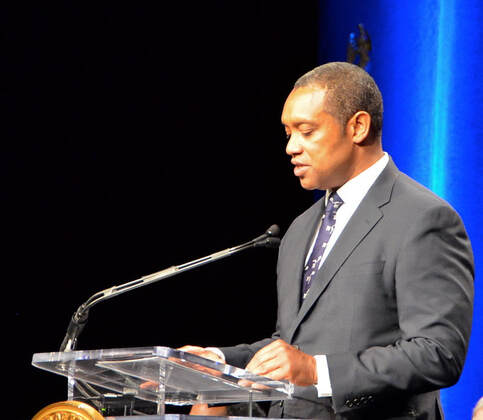
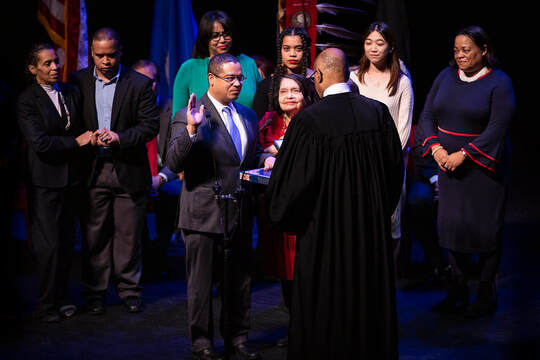
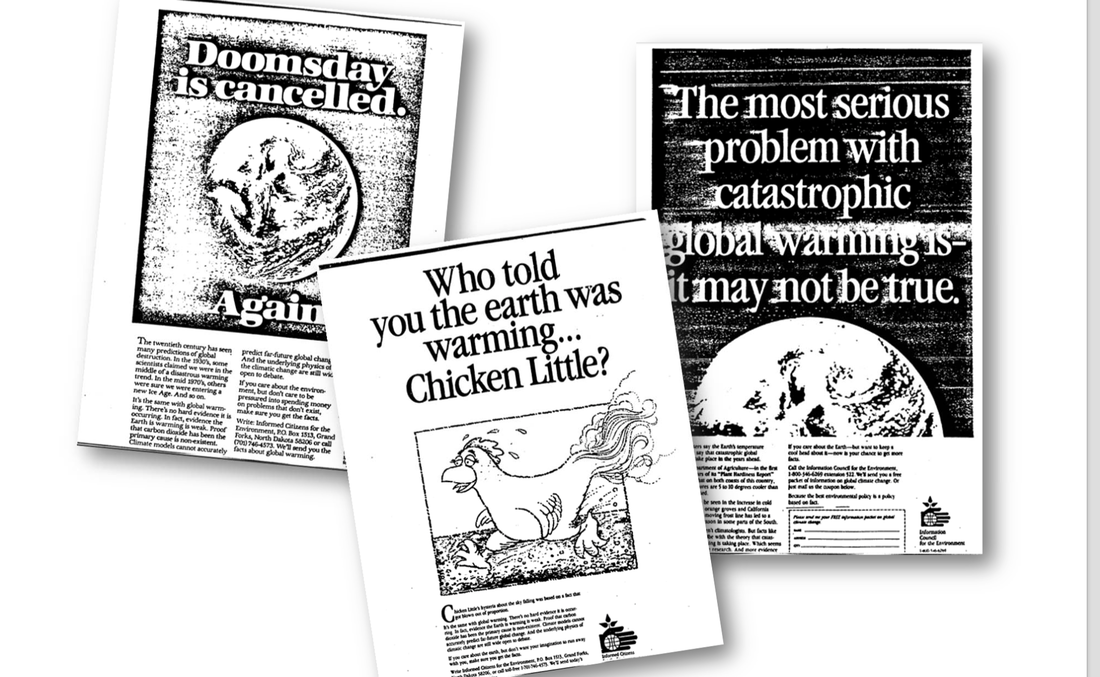
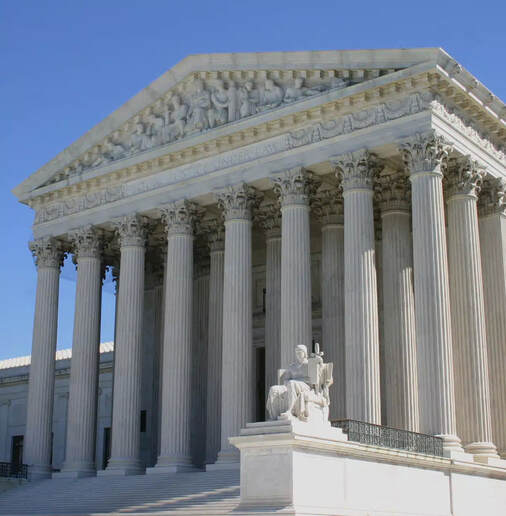
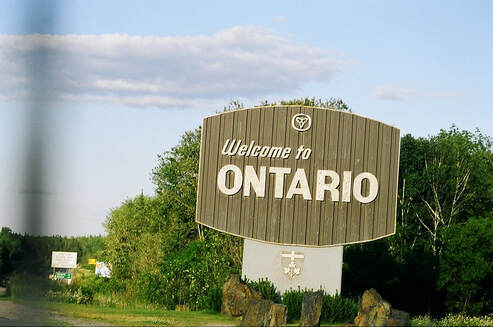
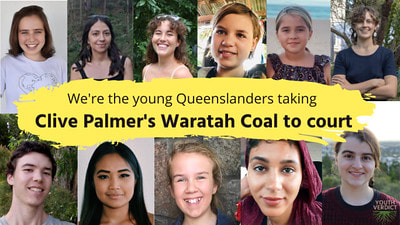
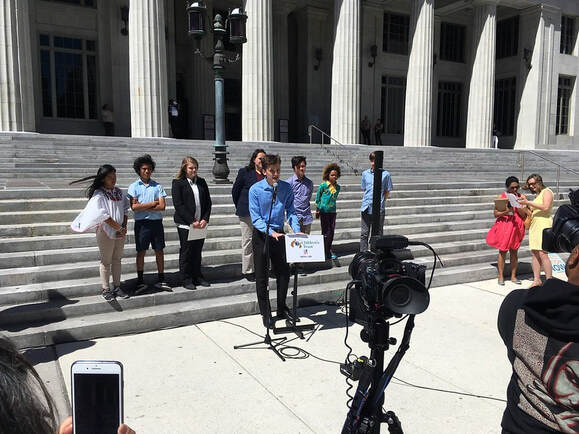

 RSS Feed
RSS Feed